This article was medically reviewed by Theodore Leng, MD. Dr. Leng is a board certified Ophthalmologist and Vitreoretinal Surgeon and an Assistant Professor of Ophthalmology at Stanford University. He completed his MD and Vitreoretinal Surgical Fellowship at Stanford University in 2010. Dr. Leng is a Fellow of the American Academy of Ophthalmology and the American College of Surgeons. He is also a member of the Association for Research in Vision and Ophthalmology, the Retina Society, the Macula Society, the Vit-Buckle Society, as well as the American Society of Retina Specialists. He received the Honor Award by the American Society of Retina Specialists in 2019.
There are 16 references cited in this article, which can be found at the bottom of the page.
wikiHow marks an article as reader-approved once it receives enough positive feedback. In this case, 88% of readers who voted found the article helpful, earning it our reader-approved status.
This article has been viewed 537,855 times.
Your eyesight is an important part of how you experience the world, so it's only natural that you'd want to do everything you can to keep your eyes healthy! Fortunately, there are a lot of things you can do to maintain—and possibly improve—your eyesight. For instance, the American Optometric Association says that eating a healthy diet rich in certain nutrients can help reduce eye diseases like macular degeneration and cataracts.[1] Keep reading for more things you can do to improve your eye health!
Steps
Strengthening Your Eyesight with Nutrition
-
1Increase your lutein intake. Lutein is a nutrient sometimes known as the eye vitamin. Consuming up to 12 mg per day of lutein can help slow the advance of age-related macular degeneration and other eye-related ailments. Foods rich in lutein include:
- Green leafy vegetables. Kale, broccoli, and spinach will all give you a good dose of lutein.
- Fruits, especially kiwis, oranges, and grapes.
- Squash and zucchini.
- Alternatively, you can take dietary supplements for lutein. Make sure you take specialized lutein supplements rather than multivitamins- these only contain a very small amount of the nutrient. Keep in mind, however, that the body usually absorbs lutein more efficiently when it's from a meal rather than supplements.
-
2Include omega-3 fatty acids in your diet. These essential nutrients can slow macular degeneration, help prevent cataracts, and improve dry eye symptoms. The best source for omega-3's is oily fish, especially salmon and sardines. They are also found in tuna, mackerel, and oysters.[2] [3]
- If you don't like or don't have access to seafood, you could also take a fish oil supplement to increase your intake of omega-3's.
Advertisement -
3Get plenty of vitamin A. This vitamin helps improve your vision in the dark and prevent night blindness. Several foods are rich in vitamin A.[4]
- Carrots. For decades carrots have been hailed as the food for good vision. They're packed with vitamin A and are a great food for maintaining eyesight.
- Sweet potato.
- Eggs. These also contain lutein, so include them in your diet for an all-around good food for your vision.[5]
-
4Eat foods high in vitamin C. Vitamin C can help slow the formation of cataracts and the onset of macular degeneration.[6] The following foods are some of the best sources for the nutrient.[7] [8]
- Oranges. Get your vitamin c from a whole orange rather than orange juice. That way, you can avoid the added sugar that comes from orange juice.
- Yellow peppers. Just one large pepper will give you 500% the necessary daily intake of vitamin c.
- Dark green vegetables. Kale and broccoli especially are high in vitamin c. With a cup of either, you can get an entire day's worth of vitamin c.
- Berries. Blueberries, strawberries, blackberries, and raspberries are all great choices for vitamin c.
-
5Add zinc to your diet. Zinc aids in the production of melanin, a pigment which helps protect the eyes. This can help the eye resist damage and slow the onset of macular degeneration. You have several choices to add more zinc to your diet.[9] [10]
- Shellfish. Lobster, crab, and oysters all provide high doses of zinc.
- Green leafy vegetables. Along with lutein, these vegetables will give your body a good dose of zinc.
- Nuts. Cashews, peanuts, almonds, and walnuts are all high in zinc. They are easy to snack on throughout the day.
- Lean red meat. In small quantities, low-fat red meat is a great source of zinc.[11]
Strengthening Your Eyes with Lifestyle Changes
-
1Use the computer properly. In this digital age, many people spend several hours a day in front of the computer or looking at a smartphone. This can cause serious damage to your eyesight. For details on how best to avoid and treat digital-related eyesight problems, see Protect Your Eyes when Using a Computer.
-
2Maintain a healthy weight. Sticking to a good diet won't only help improve your eyes with nutrients. A balanced diet will also help you avoid weight-related diseases like diabetes, which is the leading cause of blindness in adults. Talk to your doctor to find out what your ideal weight is, then use diet and exercise to stick as close to that as you can.[12]
-
3Avoid smoking. Smoking can lead to numerous eye problems like cataracts, macular degeneration, and optic nerve damage. It can also cause diabetes, which damages the eyes. If you smoke you should quit, and if you don't smoke you shouldn't start.[13]
-
4Wear sunglasses outside. UV radiation from the sun can increase your risk of cataracts and macular degeneration. Buy a good pair of sunglasses that blocks out 99-100% of UV rays and wear them whenever you're in the sun. Look for an "ANSI" sticker on sunglasses to ensure that they meet American National Standards Institute guidelines and screen out the required amount of UV rays.[14]
-
5Take care of your contacts. Dirty contact lenses can damage your eyes and even lead to vision-threatening infections. By properly caring for your lenses you can protect your eyes from damage.[15]
- Wash your lenses after every use with the cleaning solution your eye care professional recommended.
- Wash your hands before handling your contacts. This ensures that you won't transfer any bacteria from your hands to your lenses. Also wash with a mild, fragrance-free soap. You could also transfer chemicals and fragrances onto your lenses and cause eye irritation.
- Apply makeup after your lenses are already in, and remove your makeup after your contacts are out.
- Never sleep with your contacts in, unless they are specially designed for extended use.
-
6Wear goggles whenever you're working with tools or chemicals. Small objects can do a lot of damage if lodged in the eye. You should always wear appropriate eye protection during any activity where foreign objects or chemicals could enter your eyes. This will ensure that your eyes stay safe and healthy.[16]
- Make sure that your goggles wrap around your head to protect the sides of your eyes as well.
-
7Get plenty of sleep. A solid 8 hours will rest your eyes properly and re-lubricate them. That way you'll wake up with refreshed eyes ready for the day.[17]
Strengthening Your Eyesight with Eye Exercises
-
1Ask your eye doctor about eye exercises. Although there is doubt about whether eye exercises actually improve eyesight, some eye doctors prescribe them for people with particular eye problems. These include trouble focusing vision, a lazy eye, and crossed eyes.[18] Ask your doctor if eye exercises are right for you, and he can suggest some exercises in addition to the ones on this list.
-
2Blink consistently for a few minutes. While blinking is not exactly an exercise, it is necessary for healthy eyes. A common problem is that people working on computers or watching TV don't blink enough, leading to dryness and eyestrain. Take a break from your work and try blinking every 3-4 seconds for a 2 minute period. This will help re-lubricate your eyes and treat symptoms of eyestrain.[19]
-
3Trace a figure 8 with your eyes. Tracing patterns with your eyes will help strengthen eye muscles and can sharpen vision.[20] [21]
- Start by tracing a figure 8.
- After you've gotten used to tracing the 8 in one direction, try reversing directions.
- Then mentally flip the 8 on its side, making an infinity symbol. Trace this figure one way, then the other.
- When you've gotten tired of the figure 8, you can try tracing other shapes as well.
-
4Alternate between focusing on near and far objects. This exercise can help your eyes stay focused when you switch your focus to objects of different distances.[22] [23]
- Place your finger about 10 inches (25 cm) from your face. Then focus on it.
- Then switch your focus to an object about 20 feet away.
- Alternate between these two focus points every few seconds for about 3 minutes.
-
5Focus on your hand as you move it towards your face. This will help keep your eyesight sharp as you focus on moving objects.[24]
- Hold your hand out in front of your face with your arm fully outstretched. Put your thumb up and focus on it.
- Move your thumb back towards you until it's about 3 inches (8 cm) from your face, keeping your eyes focused on it the whole time.
- Then extend your arm again and stay focused on your thumb.
Strengthening Your Eyes Medically
-
1Visit your eye doctor regularly. You should get your eyes checked at least every other year. The eye doctor can give you a comprehensive checkup that will find any problems that could be damaging your eyes. It is very important to catch conditions like cataracts and macular degeneration early so you can undergo treatment. The doctor can also prescribe corrective lenses and give you advice on certain lifestyle changes that will protect your eyes.[25]
- Be sure to inform your eye doctor of any health issues you may have, even if they aren't related to your eyes. Problems like high blood pressure and diabetes can affect your vision, and the eye doctor should be aware of your entire health history.[26]
-
2Check labels on all medications you take. Some medications have side effects or drug interactions that can affect your vision. If you notice a sudden change in your vision and take medicine regularly, ask your doctor or pharmacist about the drugs you're on. There may be a side effect or interaction that you weren't aware of.[27]
-
3Ask your eye doctor about prescription eye drops. If you suffer from chronic eye discomfort or inflammation, there may be prescription options for you. For problems like chronic dry eyes, prescriptions like Restasis can help stimulate tear production.[28] Bring up any problems you've been having when you visit the eye doctor and see if there are prescriptions you can try.
-
4Consider laser eye surgery. LASIK is a medical procedure where a surgeon uses a laser to reshape sections of the cornea. This helps the eye focus better and improves vision. LASIK has a high success rate. It can be very expensive, however, and the results may not be permanent. Talk with your eye doctor to find out if this is a good option for you.[29]
Warnings
- Remember to consult your doctor before making any drastic changes in diet or lifestyle, or using products in your eyes. Without proper guidance and consultation, you could damage your body.⧼thumbs_response⧽
- Only take dietary supplements as directed. While correct amounts of certain nutrients are beneficial, some are harmful in higher doses.⧼thumbs_response⧽
References
- ↑ https://www.aoa.org/healthy-eyes/caring-for-your-eyes/diet-and-nutrition?sso=y
- ↑ http://www.allaboutvision.com/nutrition/foods.htm
- ↑ http://www.webmd.com/eye-health/good-eyesight
- ↑ http://www.webmd.com/healthy-aging/nutrition-world-3/foods-eye-health?page=2
- ↑ http://www.allaboutvision.com/nutrition/foods.htm
- ↑ http://www.aoa.org/patients-and-public/caring-for-your-vision/diet-and-nutrition?sso=y
- ↑ http://www.healthaliciousness.com/articles/vitamin-C.php
- ↑ http://www.webmd.com/healthy-aging/nutrition-world-3/foods-eye-health
- ↑ http://www.aoa.org/patients-and-public/caring-for-your-vision/diet-and-nutrition?sso=y
- ↑ http://www.healthaliciousness.com/articles/zinc.php
- ↑ http://www.webmd.com/eye-health/ss/slideshow-healthier-eyes
- ↑ http://www.webmd.com/eye-health/good-eyesight
- ↑ http://www.webmd.com/eye-health/good-eyesight
- ↑ http://www.webmd.com/eye-health/good-eyesight
- ↑ http://www.webmd.com/eye-health/caring-contact-lens
- ↑ http://www.webmd.com/eye-health/good-eyesight
- ↑ http://www.webmd.com/eye-health/eye-fatigue-causes-symptoms-treatment
- ↑ http://www.webmd.com/eye-health/eye-exercises
- ↑ http://www.stevenaitchison.co.uk/blog/5-eye-exercises-to-improve-your-vision/
- ↑ http://www.webmd.com/eye-health/eye-exercises
- ↑ http://www.stevenaitchison.co.uk/blog/5-eye-exercises-to-improve-your-vision/
- ↑ http://www.webmd.com/eye-health/eye-exercises
- ↑ http://www.stevenaitchison.co.uk/blog/5-eye-exercises-to-improve-your-vision/
- ↑ http://www.stevenaitchison.co.uk/blog/5-eye-exercises-to-improve-your-vision/
- ↑ http://www.webmd.com/eye-health/good-eyesight?page=2
- ↑ http://www.webmd.com/eye-health/ss/slideshow-healthier-eyes
- ↑ http://www.webmd.com/eye-health/ss/slideshow-healthier-eyes
- ↑ http://www.drugs.com/restasis.html
- ↑ http://www.webmd.com/eye-health/lasik-laser-eye-surgery
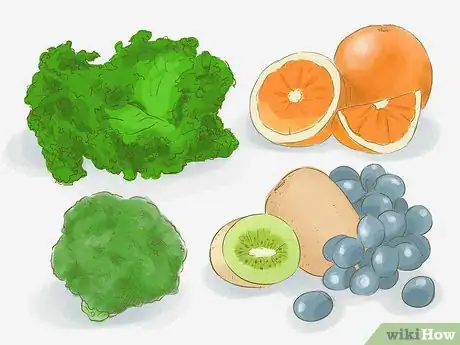
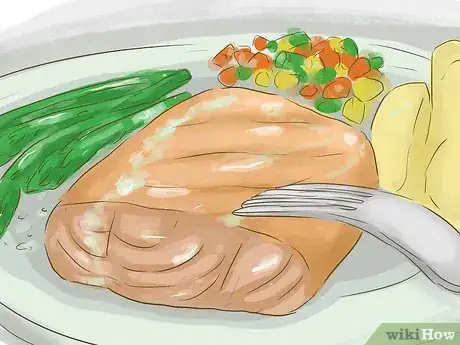

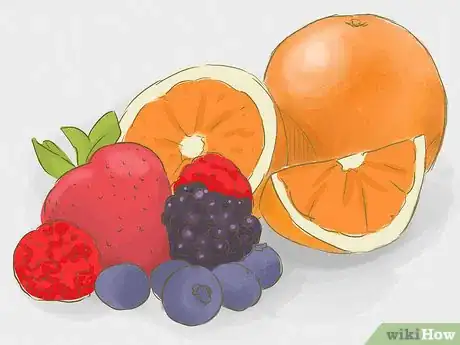


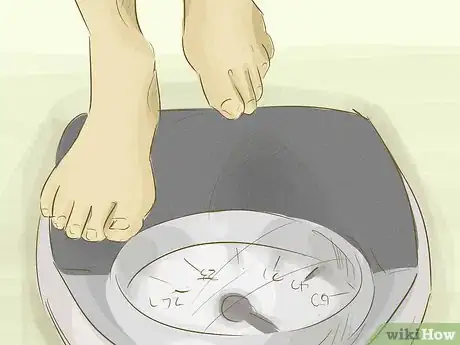


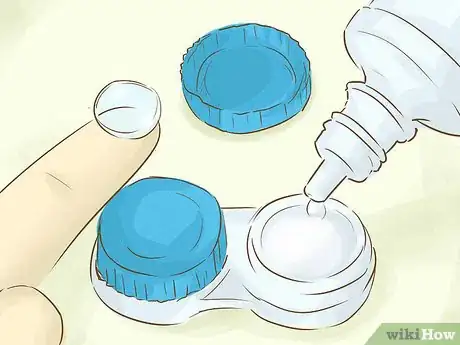
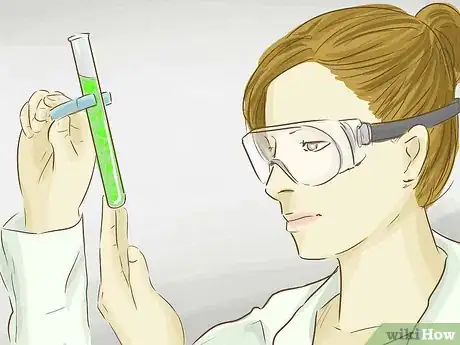

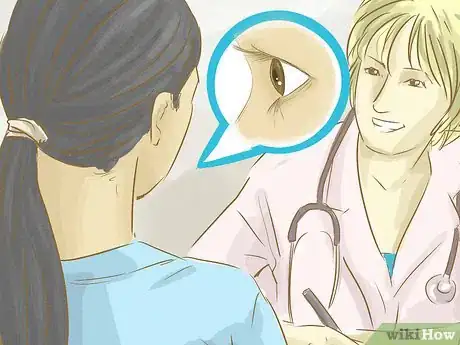
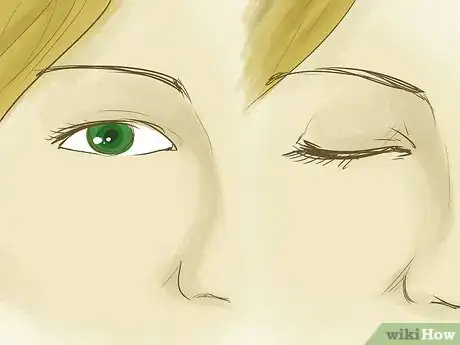
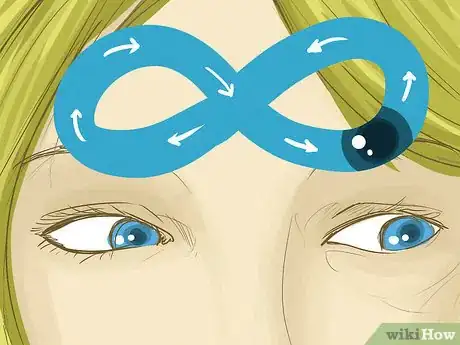
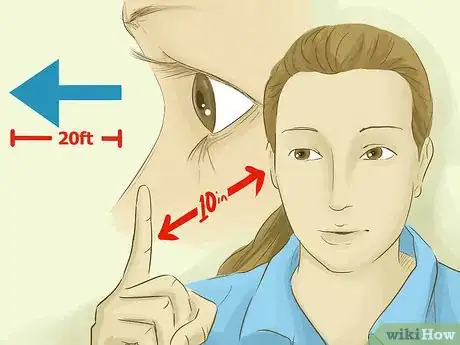
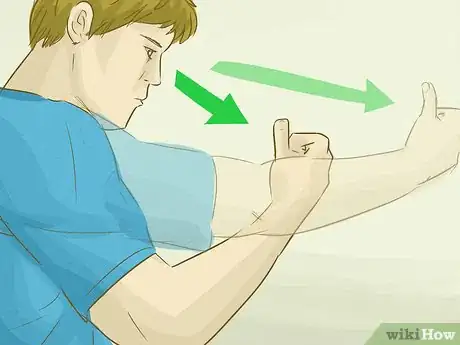
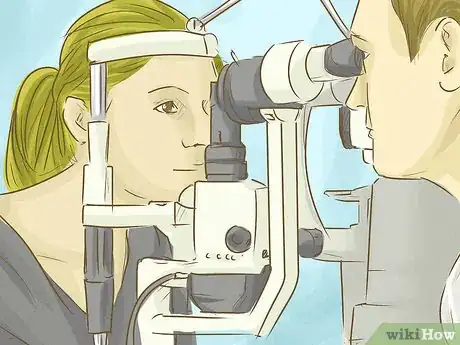
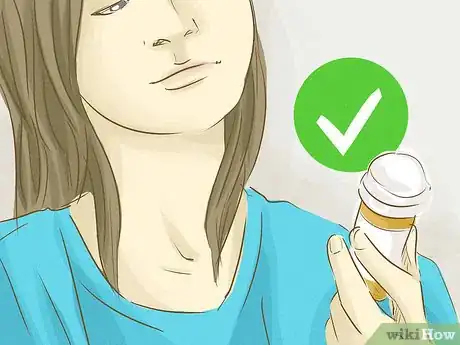
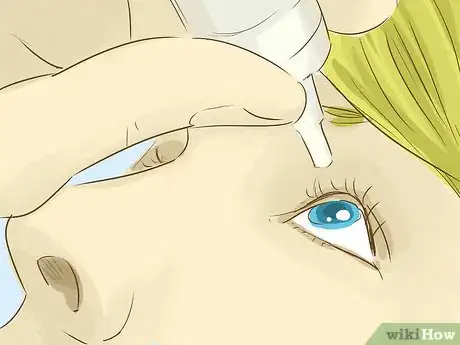
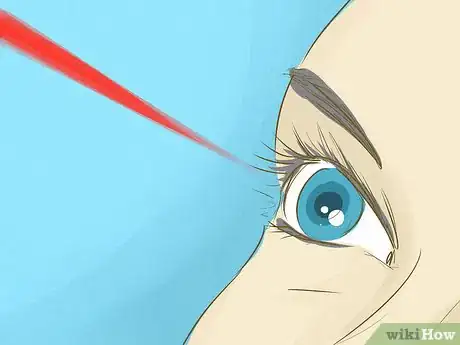
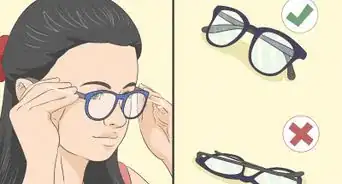
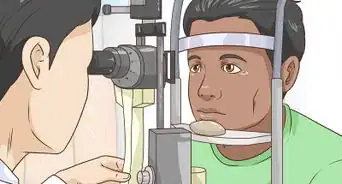
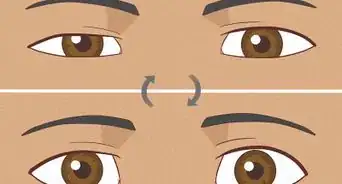
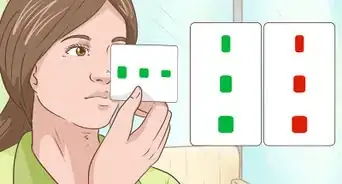



















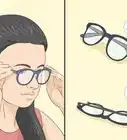
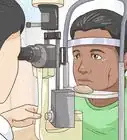
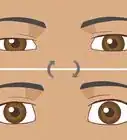




































Medical Disclaimer
The content of this article is not intended to be a substitute for professional medical advice, examination, diagnosis, or treatment. You should always contact your doctor or other qualified healthcare professional before starting, changing, or stopping any kind of health treatment.
Read More...